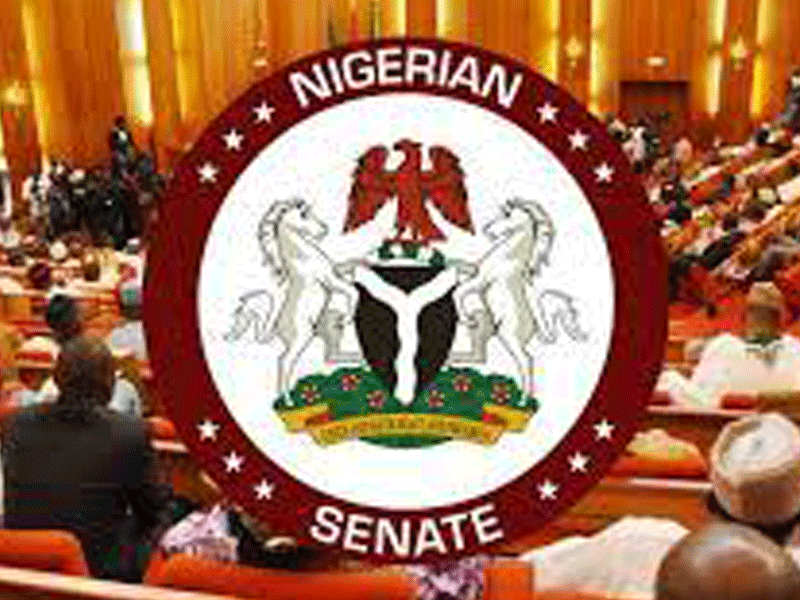•To mandate recovery of stolen funds, establish special court for oil thieves
Sunday Aborisade in Abuja
Senate, yesterday, approved the interim report of its Ad-hoc Committee on Crude Oil Theft, which unearthed shocking discrepancies amounting to over $200 billion in unaccounted crude oil sales proceeds between 2015 and 2023.
The upper chamber’s resolution followed the presentation and adoption of the committee’s interim report on “Investigation of the Incessant and Nefarious Acts of Crude Oil Theft in the Niger Delta and the Actors.”
The report considered during plenary detailed how systemic weaknesses, poor regulation, weak institutional synergy, and the suspension of vital oversight functions under the Petroleum Industry Act (PIA) had enabled widespread crude oil theft, resulting in monumental revenue losses for the country.
The report was presented and read at plenary by the chairman of the adhoc panel, Senator Ned Nwoko.
According to the document, local investigations revealed unaccounted domestic crude sale differentials and mismatches of about $22 billion, while a further shortfall of $81 billion was traced between the crude proceeds declared by the Nigerian National Petroleum Company (NNPC) and the Central Bank of Nigeria (CBN) during 2016–2017.
The report further disclosed that forensic and international investigations conducted by consultants in the United Kingdom, United States, and Canada projected an even larger sum of over $200 billion in unaccounted crude oil sales proceeds.
The committee warned that unless urgent recovery actions were initiated, Nigeria risked permanently losing the stolen resources to foreign accounts and complicit international traders.
Presenting the report, the chairman of the committee said the probe was borne out of a Senate motion passed on October 10, 2023, which mandated an investigation into crude oil theft and the actors involved.
The exercise was reconstituted as an Ad-hoc Committee in February 2025 following the passing of the initial chairman, the late Senator Ifeanyi Ubah.
The findings, according to the report, stemmed from months of document reviews, submissions from industry regulators, host communities, oil majors, and the general public.
The committee lamented that the suspension of the Weights and Measures Department’s oversight of the upstream sector under the PIA 2021 had “undermined the checks and balances necessary for accurate measurement and accountability.”
It also identified ineffective inter-agency collaboration, unverified measuring instruments, lack of global best practices, and absence of a coordinated enforcement mechanism as enablers of theft.
Equally, the committee faulted the non-implementation of the Host Communities Development Trust Fund (HCDTF) and the absence of a special court to promptly prosecute oil thieves as key institutional gaps that had perpetuated crude diversion and economic sabotage.
Beyond financial losses, the committee drew attention to the environmental and humanitarian toll of abandoned and poorly decommissioned oil wells across the Niger Delta, which continued to leak crude and gas, polluting the ecosystem and threatening livelihoods.
However, it acknowledged a recent improvement in crude oil production and security in oil-bearing areas, reporting a rebound from 490.95 million barrels in 2022 to 537.57 million barrels in 2023, a 9.5 percent increase attributed to improved surveillance and operational coordination.
In its recommendations, the senate committee urged the federal government to empower the Nigerian Upstream Petroleum Regulatory Commission (NUPRC) to strictly enforce globally accepted crude oil measurement standards at all production sites and export terminals.
Alternatively, the lawmakers suggested that the Weights and Measures Department of the Ministry of Industry, Trade, and Investment be reinstated to the upstream sector and equipped with state-of-the-art measuring instruments to ensure transparency and accountability in the oil and gas value chain.
The senate also called for the deployment of advanced technology and unmanned aerial vehicles (UAVs) for real-time monitoring of pipelines, export terminals, and other critical infrastructure to prevent theft and leakages.
To enhance maritime security and logistics, it recommended the establishment of a Maritime Trust Fund to support infrastructure development, training, and surveillance capacity within the nation’s waterways.
Furthermore, the committee advised that a special court be established for the swift prosecution of crude oil thieves and their collaborators.
It urged the immediate implementation of the Host Communities Development Trust Fund (HCDTF) to address the grievances of oil-producing areas and reduce sabotage.
It also proposed that all abandoned and decommissioned oil wells be ceded to the NUPRC, which should, in turn, allocate them to modular refineries to boost local refining capacity and reduce illegal refining operations.
In what could become a landmark anti-corruption move, the committee recommended that it be granted a mandate to track, trace, and recover all stolen crude proceeds, both locally and internationally.
The lawmakers emphasised that the forensic evidence already pointed to over $22 billion, $81 billion, and $200 billion of unaccounted crude oil revenue that must be recovered for the benefit of Nigerians.
The senate leadership, while commending the committee for its exhaustive work, pledged the chamber’s commitment to ensuring that the federal government implemented the recommendations in full.
Lawmakers described the findings as “a wake-up call on Nigeria’s oil governance structure,” insisting that the identified funds can significantly reduce the country’s debt and budget deficit if recovered.
The adoption of the report marked a major step in the National Assembly’s ongoing drive to sanitise the oil and gas sector, restore transparency in crude trading, and hold complicit institutions and individuals accountable.
With Senate’s approval, the ad-hoc committee is now expected to commence the second phase of its assignment, which is the global tracking and recovery of stolen crude proceeds.
It is a process that may expose powerful local and international interests in one of Nigeria’s most entrenched economic crimes.
